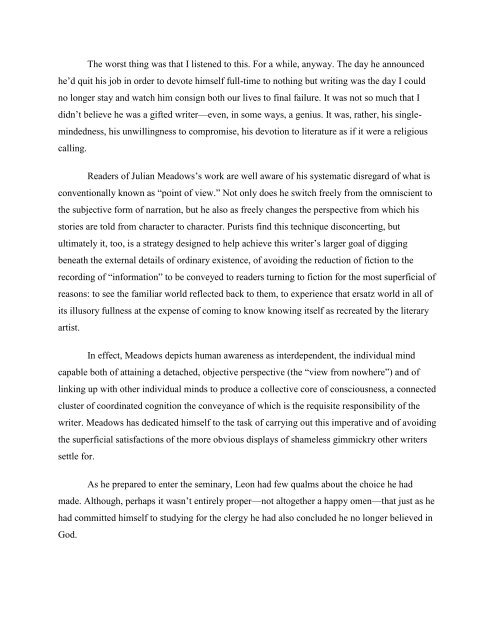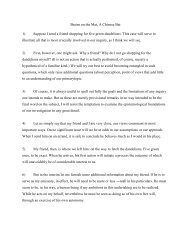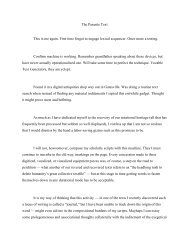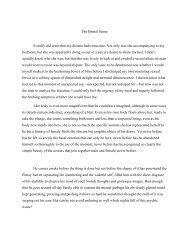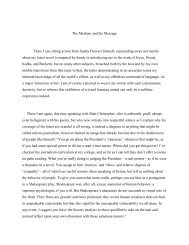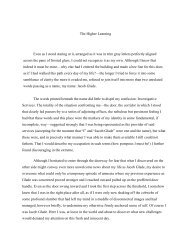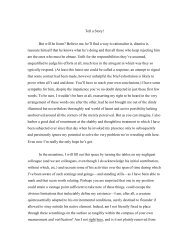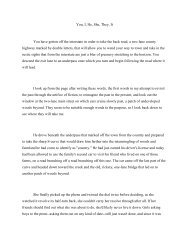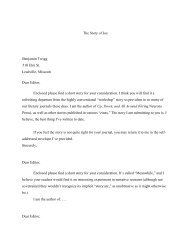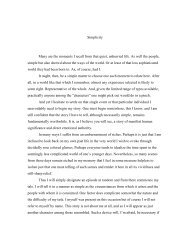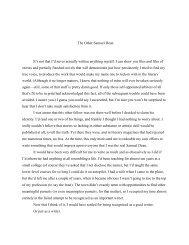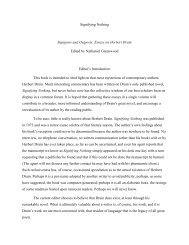The View from Nowhere
Create successful ePaper yourself
Turn your PDF publications into a flip-book with our unique Google optimized e-Paper software.
<strong>The</strong> worst thing was that I listened to this. For a while, anyway. <strong>The</strong> day he announced<br />
he’d quit his job in order to devote himself full-time to nothing but writing was the day I could<br />
no longer stay and watch him consign both our lives to final failure. It was not so much that I<br />
didn’t believe he was a gifted writer—even, in some ways, a genius. It was, rather, his singlemindedness,<br />
his unwillingness to compromise, his devotion to literature as if it were a religious<br />
calling.<br />
Readers of Julian Meadows’s work are well aware of his systematic disregard of what is<br />
conventionally known as “point of view.” Not only does he switch freely <strong>from</strong> the omniscient to<br />
the subjective form of narration, but he also as freely changes the perspective <strong>from</strong> which his<br />
stories are told <strong>from</strong> character to character. Purists find this technique disconcerting, but<br />
ultimately it, too, is a strategy designed to help achieve this writer’s larger goal of digging<br />
beneath the external details of ordinary existence, of avoiding the reduction of fiction to the<br />
recording of “information” to be conveyed to readers turning to fiction for the most superficial of<br />
reasons: to see the familiar world reflected back to them, to experience that ersatz world in all of<br />
its illusory fullness at the expense of coming to know knowing itself as recreated by the literary<br />
artist.<br />
In effect, Meadows depicts human awareness as interdependent, the individual mind<br />
capable both of attaining a detached, objective perspective (the “view <strong>from</strong> nowhere”) and of<br />
linking up with other individual minds to produce a collective core of consciousness, a connected<br />
cluster of coordinated cognition the conveyance of which is the requisite responsibility of the<br />
writer. Meadows has dedicated himself to the task of carrying out this imperative and of avoiding<br />
the superficial satisfactions of the more obvious displays of shameless gimmickry other writers<br />
settle for.<br />
As he prepared to enter the seminary, Leon had few qualms about the choice he had<br />
made. Although, perhaps it wasn’t entirely proper—not altogether a happy omen—that just as he<br />
had committed himself to studying for the clergy he had also concluded he no longer believed in<br />
God.


